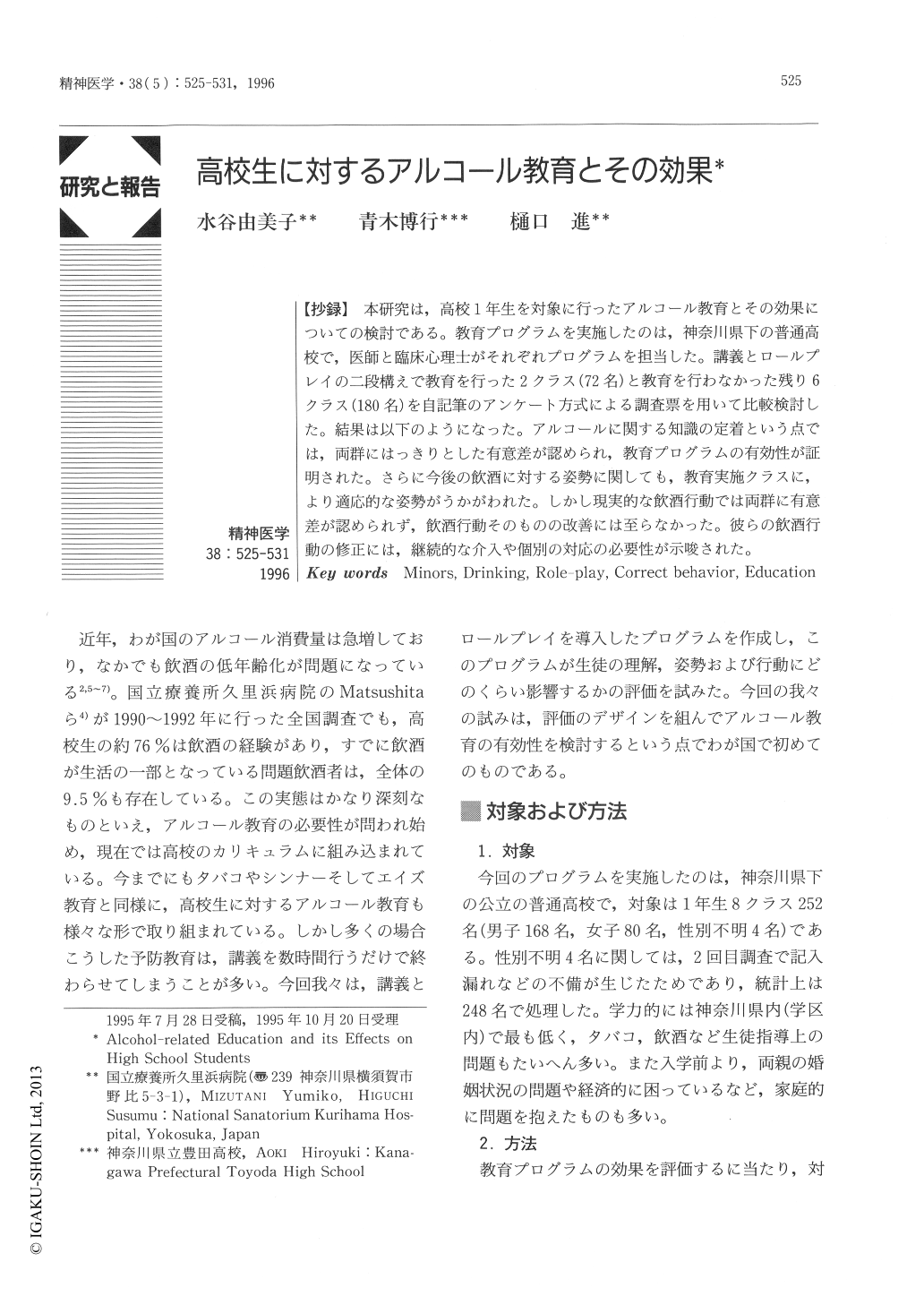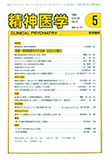Japanese
English
- 有料閲覧
- Abstract 文献概要
- 1ページ目 Look Inside
【抄録】本研究は,高校1年生を対象に行ったアルコール教育とその効果についての検討である。教育プログラムを実施したのは,神奈川県下の普通高校で,医師と臨床心理士がそれぞれプログラムを担当した。講義とロールプレイの二段構えで教育を行った2クラス(72名)と教育を行わなかった残り6クラス(180名)を自記筆のアンケート方式による調査票を用いて比較検討した。結果は以下のようになった。アルコールに関する知識の定着という点では,両群にはっきりとした有意差が認められ,教育プログラムの有効性が証明された。さらに今後の飲酒に対する姿勢に関しても,教育実施クラスに,より適応的な姿勢がうかがわれた。しかし現実的な飲酒行動では両群に有意差が認められず,飲酒行動そのものの改善には至らなかった。彼らの飲酒行動の修正には,継続的な介入や個別の対応の必要性が示唆された。
Alcohol consumption among minors has sharply increased in Japan in recent years, and alcohol -related problems associated with this have become serious. From 1993, education concerning alcohol was added to that on tobacco and AIDS in the high school curriculum. We have prepared an alcohol education program with an original design for public high schools in Kanagawa prefecture. We attempted to evaluate what effects this program had on the drinking behavior and attitudes to drinking of Japanese high school students.
The subjects were 248 students in eight classes in the first year of high school.
Two classes with 72 students were taken as model classes which received the program and the remaining six classes with 176 students, which did not receive the program, as controls. Both groups were surveyed by means of a direct questionnaire twice, before and after the program. In the survey before the program was given, the questionnaire contained 22 questions including those on frequency and amounts of alcohol consumed, reasons for drinking and psychological effects of drinking. The survey after the program included these 22 questions, plus another 11 questions on knowledge concerning alcohol, for a total of 31. The results of these surveys in both groups were compared and the effectiveness of the program was examined. The program consisted of two parts, a lecture and role-playing. A physician gave the lecture and a clinical psychologist was in charge of the role-playing. The results of the survey after the program are outlined here.The survey on knowledge concerning alcohol indicated that the model classes had a higher correct response rate than the controls. This result shows that this education program was effective in conveying knowledge about alcohol.The model classes showed a more appropriate attitude to alcohol consumption in the future.However, actual drinking behavior showed no significant difference between the two groups.
From this study, it was clear that this program,given once, provided knowledge concerning alcohol to high school students but it did not bring about any changes in their drinking behavior.The necessity of continuous intervention and individual care to correct their drinking behavior was suggested.

Copyright © 1996, Igaku-Shoin Ltd. All rights reserved.


